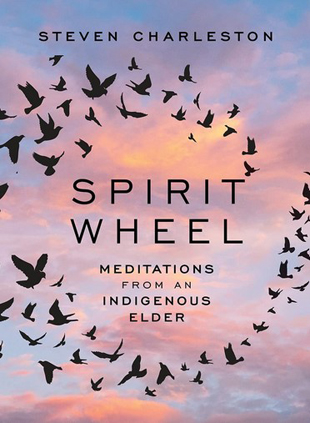Steven Charleston is not a new voice; he has held leadership positions in the Choctaw Nation and the Episcopal Church USA (as a priest and bishop) for many decades. He has also served as president of one seminary, and professor of theology at another. We reviewed his previous book, Ladder to the Light, in 2021.
Like Nicholas Black Elk before him, Charleston explains in the introduction to this book that it is his Native American life and spirituality — as a hattak holitopa, or “holy man” — that taught him prayer as natural as breathing. Then, Charleston came to know the Christian faith.
“I brought my Indigenous faith with me as I began exploring one Christian denomination after another,” he explains. This is only one of many “quests” he describes, as central to his life of faith and belonging. The quest has never ceased, and after more than seven decades it embraces a variety of religious and spiritual traditions, including expressions from Indigenous traditions. He names many, including Kiowa, Inuit, Pequot, Ojibway, and places from Native Hawaii to Maoris in Aotearoa (New Zealand) and Aborigines of Australia.
In this book, Charleston sets out to summarize what he’s discovered and learned, calling them “mysteries” that a reader should encounter “with a curiosity, an openness, to hear what Native America has to say, to teach, to share.” He chose the image of a spirit wheel to indicate the Indigenous vision of universality called “the four directions” — meaning that the spirit is wheeling not in one direction or another but in many — and “the spiritual reality that encompasses us all.”
After the introduction come four sections: “Tradition of the Ancestors,” “Kinship with Creation,” “Vision of the Spirit,” and “Balance of Life.” Each section presents teachings in the form of poems, each less than a page long, some of them affirmations, some of them prayers or blessings. Here is one example, that focuses on spiritual practices of hope, compassion, and zeal:
“It is a good day to live.
“My ancestors were unafraid to make the spirit journey
When the time came
Accepting it as a good day to die.
“They saw every other day as a good day to live.
“Let me embrace each dawn as gift.
Let me walk the hours of day unafraid
With grace and faith unbounded.
Let evening find me close to those I love
Warming my soul by the fires of their laughter.
“Let me sleep believing tomorrow will be a blessing.”
